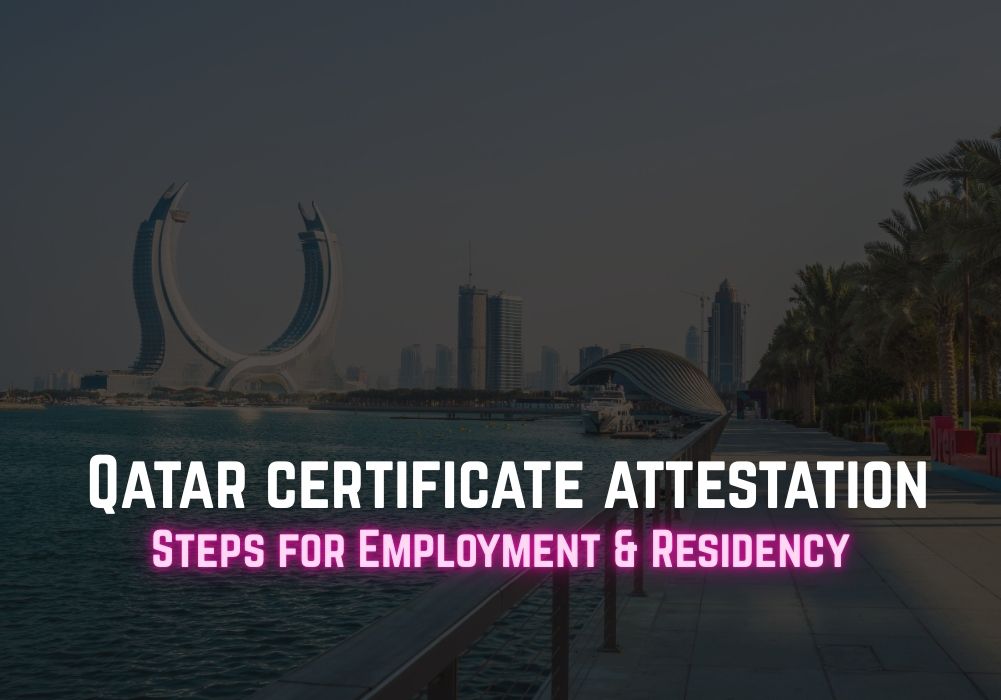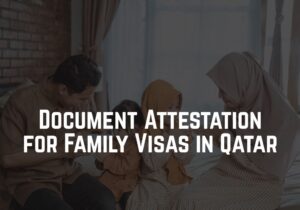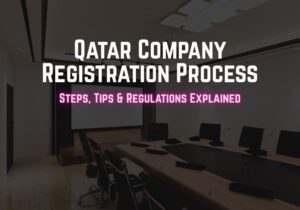Moving to Qatar for employment or residency requires more than just visas and permits. One of the most critical steps is certificate attestation, a process that validates your documents for legal use in the country. Without proper attestation, applications for jobs, family visas, or residence permits may face delays or even rejection.
This guide provides a clear, step-by-step overview of the certificate attestation process in Qatar, helping you prepare the required documents and avoid common mistakes.
Why Certificate Attestation Is Important in Qatar
- Employment purposes: Employers require attested educational and professional certificates for job verification.
- Residency permits: Families moving to Qatar must present attested marriage and birth certificates.
- Legal recognition: Attestation ensures your documents are accepted by Qatari authorities.
- Hassle-free processing: Prevents unnecessary delays in visa, immigration, and business-related applications.
Documents Commonly Requiring Attestation
- Commercial and business-related documents
- Educational certificates (degrees, diplomas, transcripts)
- Professional experience certificates
- Marriage certificates
- Birth certificates
Step-by-Step Guide to Certificate Attestation in Qatar
1. Verification in Your Home Country
Start with authentication from your local authorities (university, notary, or relevant department).
2. Ministry of Foreign Affairs (MOFA) in Your Home Country
Your document must be legalized by the foreign ministry in your country of origin.
3. Qatar Embassy Attestation
Submit your documents to the Qatari embassy or consulate for approval.
4. Final Attestation in Qatar (MOFA)
Once you arrive in Qatar, the Ministry of Foreign Affairs (MOFA) provides the final stamp of approval.
Document Requirements:
• Education documents (degrees, diplomas) necessary for job applications.
• Birth and marriage certificates for residency and spouse visa applications.
• Commercial documents like trade licenses and agreements for business purposes.
Common Challenges in Certificate Attestation:
- Rejections if copies are not properly notarized.
- Missing stamps from your home country authorities.
- Incorrect translations when documents are not in English or Arabic.
- Delays at embassies due to incomplete submissions.
Benefits of RCH Attestation Services:
Utilizing specialized professional services for certificate attestation can significantly alleviate the burdens of the process:
• Faster processing times allow you to meet deadlines without unnecessary delays.
• Error-free submissions reduce the risk of document rejections.
• Guidance on MOFA requirements ensures that you comply completely with Qatari regulations.
• Avoiding frustrations with complex steps and bureaucratic hurdles.
Tips to Simplify the Process
- Use professional services to ensure your documents are properly prepared.
- Start the attestation process early to avoid delays.
- Double-check requirements with both your home country and Qatari authorities.
Conclusion
The certificate attestation process in Qatar is essential for securing employment, residency permits, and legal recognition of your documents. By following the right steps and preparing your paperwork carefully, you can avoid unnecessary delays and start your new journey in Qatar with confidence.
For a hassle-free experience, contact RCH. With over 20 years of professional expertise, we provide reliable certificate attestation services to make your transition to Qatar smooth and stress-free.
FAQ: Certificate Attestation in Qatar
Attestation is required to validate your documents for employment, residency, and legal use in Qatar.
It usually takes 2–6 weeks, depending on your home country and embassy processing times.
No. Non-attested documents are not legally recognized by Qatari authorities.
Yes, most employers require attested degrees, diplomas, or professional certificates.
Absolutely. RCH has over 20 years of experience helping individuals and businesses complete attestation in Qatar quickly and professionally.






